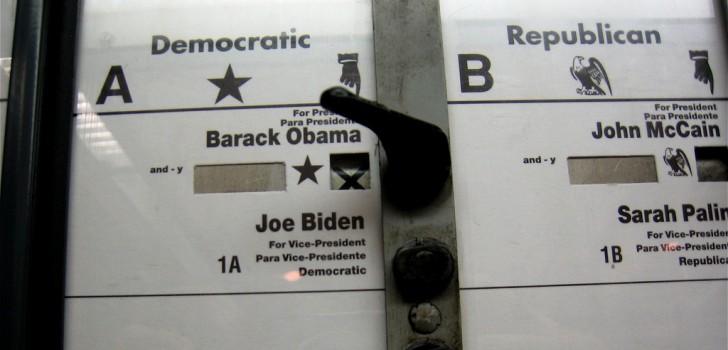The voting machines used in American elections are aging fast, in what could quickly develop into a serious problem for voters. In the upcoming 2016 elections, 43 states will make use of electronic voting machines that are over 10 years old. This is extremely close to expected lifespans of most of these machines.
Using old voting equipment creates the risk of failures and crashes. These events could result in long lines and lost votes on Election Day. The problems will only become more concerning the longer that no action is taken.
The bipartisan Presidential Commission on Election Administration (PCEA) issued a warning about the widespread ageing of voting machines in January of 2014.
Yet jurisdictions lack funds to purchase new machines, while legal constraints prevent the development of new ones.
The machines in use today were not designed to last for decades. Many were designed and engineered during the 1990s and most have a lifespan between 10 and 20 years.
The voting machines used in most states are dangerously within this critical period.
Making matters worse is that some machines are no longer manufactured, and election officials are struggling to locate replacement parts. Some older machines are also plagued by security issues, making votes accessible through wireless features. Hackers could potentially record voting data or inject malicious data. A voter could also select the name of one candidate, but the machine would register it as another.
While the security issues have been highlighted in the past and are generally well known little has been done to address them.
Election jurisdictions representing at least 31 states want to buy new voting equipment within the next five years but at least 22 of these states are not sure where the money will come from.
Estimates show that the initial cost of replacing equipment nationwide could total more than $1 billion.
A troubling issue is that wealthier counties will likely be better able to replace ageing machines than poorer counties. This could lead to poorer counties using aged voting machines far longer than recommended causing a skew in elections that favors the rich.
While the findings are troubling, technology is improving, and there is hope that these machines could have increased reliability with decreased costs in the future. However, the immediate need to replace these machines is a major issue in the short run and will be a hot button issue heading into the 2016 election cycle.
Stay Connected